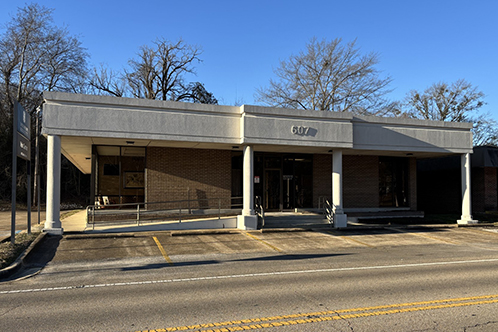- Home
- Medical Services
- Vein Care

Vein Care
The North Mississippi Medical Center Vein Center team treats issues affecting veins of the leg, including varicose veins, spider veins, venous ulceration and inflammation.

Your Choice is Clear
Varicose veins are often thought of as a nagging consequence of the aging process. Left untreated, varicose veins pose a serious health risk that can lead to chronic wounds and debility.
Healthy leg veins contain valves that open and close to assist the return of blood back to the heart. When these valves become diseased, you may suffer from:
Varicose veins
Pain
Swollen limbs
Leg heaviness and fatigue
Skin changes
Ulcers
Varicose veins are swollen and twisted veins. They are sometimes painful. Causes of varicose veins are defective valves from birth, pregnancy and prolonged standing. Another cause is thrombophlebitis, inflammation of a vein along with the formation of a blood clot. Symptoms include:
Fullness in the legs
Aching in the legs
Visible veins
Swelling
Discoloration of the skin at the ankle
Skin ulcers at the ankle
Diagnosis
Varicose veins are usually diagnosed through a physical examination while standing. The next step is an ultrasound that looks at blood flow in the veins, particularly the valves in the lower leg. Pooling of blood causes varicose veins to look "ropey.” The ultrasound is also used to rule out blood clots in the legs known as a Deep Venous Thrombosis (DVT).
Most varicose veins are relatively benign, but varicosities can lead to major complications and lost work time. Some conditions caused by varicose veins can be costly and hard to treat.
Treatment
Treatment includes decreasing gravity’s effect on the veins in the lower legs. Avoiding standing for too long, raising the legs while resting or sleeping, and wearing compression stockings are recommended.
Surgical treatment includes:
- Sclerotherapy, a non-surgical treatment for varicose veins in which medicine is directly injected into the varicose veins to cause them to sclerose or scar.
- Phlebectomy, a procedure performed in the operating room or office in which small incisions are made to remove the varicose veins.
- Vein stripping, a procedure in which the saphenous vein is removed in the operating room with two incisions.
- Endovenous thermal ablation, an office-based procedure which does not require a trip to the operating room. The vein is treated with small catheters and an energy device to seal the vein, causing the treated vein to thrombose, which effectively closes this pathologic pathway.
If varicose veins are becoming a problem, talk to your health care provider. A consultation with a vein specialist may be in order.
Related Locations
Related Resources
View AllTake our self-assessment to see if you quality for a free screening at NMMC Vein Center.
